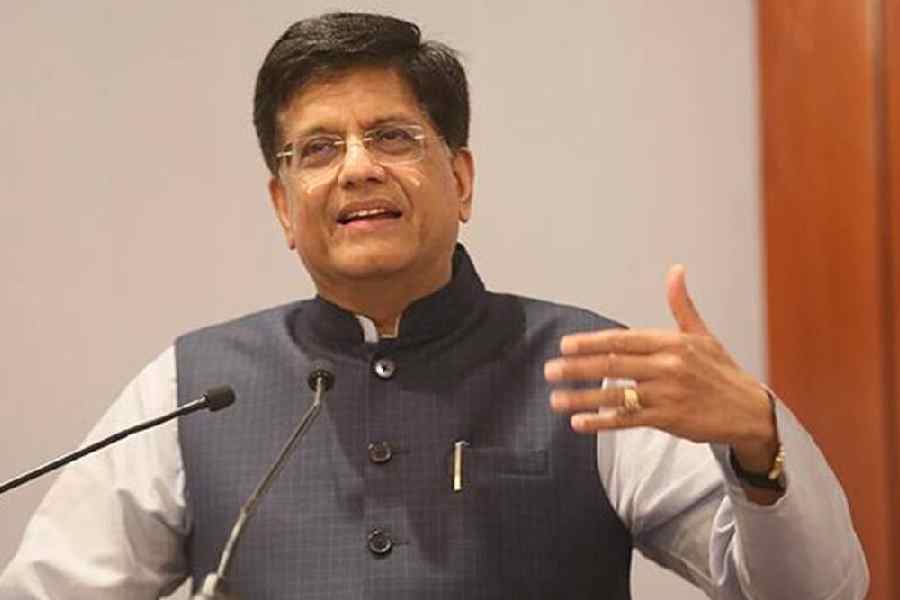The Customs duties of India are "very" often misconstrued to be high on most items but in reality, they are low, Commerce and Industry Minister Piyush Goyal has said.
He said that the duties on technological items that are helping the Indian economy grow are very low.
Actual applied rates of tariffs are lower than the agreed bound rates at WTO (World Trade Organization), Goyal told reporters on Tuesday after the 1st India-EU Trade & Technology Council (TTC) meeting in Brussels, Belgium.
Goyal said that the TTC is helpful as it is supplementing the free trade agreement negotiations and the agreement will make India-EU relationship the defining partnership of the century.
"India's tariffs are very often misconstrued to be very high on most items, raw materials, intermediates but in reality the duties are very low," he said.
Goyal also said that India is engaging with the EU on Carbon Border Adjustment Mechanism (CBAM) as it is not the EU's intention to create a barrier to trade but to find a way forward towards sustainability as part of collective efforts.
He stressed that India and the EU are working together to find the right solution to the CBAM issue.
On the trade agreement with the EU, he said that the negotiations are progressing well.
Goyal also held a bilateral meeting with the European Commissioner for Internal Trade, Thierry Breton.
On the suggestion of Breton for exploring engagement in the space sector, Goyal informed that India is amongst the major powers in the space sector and that both sides can have deeper engagements in the sector.
Breton informed that the EU is working on new Digital Services Act to which Goyal said that both sides can collaborate further given India's status as an IT giant.
On the issue of carbon border adjustment mechanism (CBAM), the minister informed that further study needs to be undertaken as to how this could impact enterprises on both sides, impact on trade and the effect on consumers due to increased price of goods and services. The commerce ministry in a separate statement said that as part of the first ministerial meeting of India-European Union Trade and Technology Council (TTC), a stakeholders event for working groups 1 and 2 was co-chaired by Goyal, External Affairs Minister S Jaishankar and Rajeev Chandrashekar, Minister of State for Electronics and Information Technology on the Indian side and Margrethe Vestager, Executive Vice President of European Commission, and Theirry Breton, European Commissioner, on the EU side.
The event was attended by 18 stakeholders, from various business sectors and both India and EU presented their views and suggestions.
From the Indian side, there were five stakeholders who represented the digital and technology sector (Working Group 1) while three represented clean and green energy technologies (Working Group 2).
Issues which came up for discussions include digital technologies, innovations; interoperability for cross border merchant payments; re-globalisation; enabling harmonised standards, regulations and policies to enhance digital trade and investment between India and the EU; digital transformation to scale.
The other issues include certifications; engagements on production of green hydrogen; battery systems and recycling; scaling up charging systems for better access; waste and water management, it said.
Goyal, in his address and subsequent interventions, underscored the importance of new digital technologies and their transformations helping to reskill and upskill existing talents.
"The Minister informed that mutual recognition of degrees/courses would enable joint skill development on both sides," he said.
He also suggested that to have deeper understanding based on mutual sensitivities, working groups need to engage periodically and identify separate tracks for skilling and talent, semiconductor ecosystem to move towards clear and identifiable deliverables.
Except for the headline, this story has not been edited by The Telegraph Online staff and has been published from a syndicated feed.










